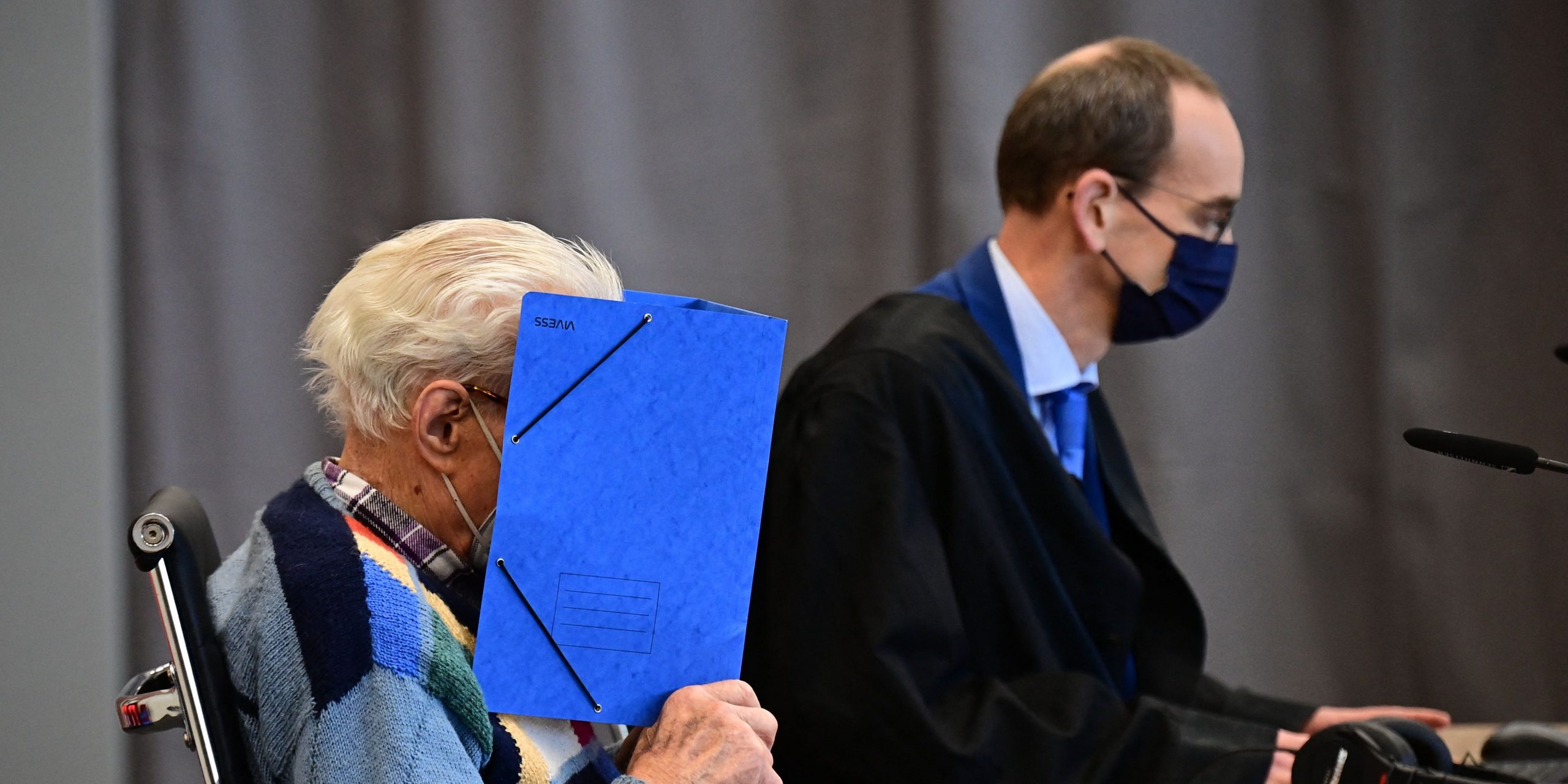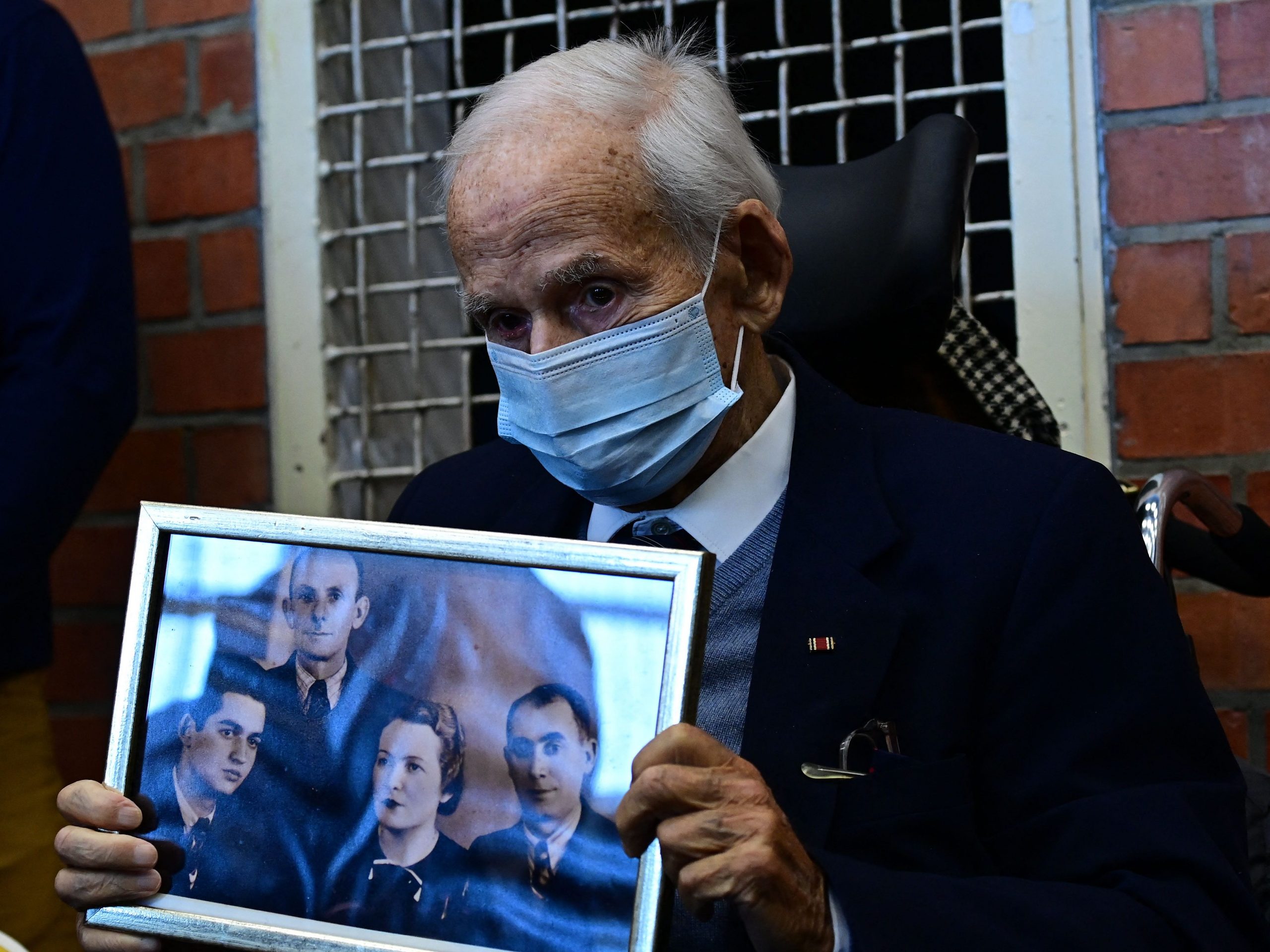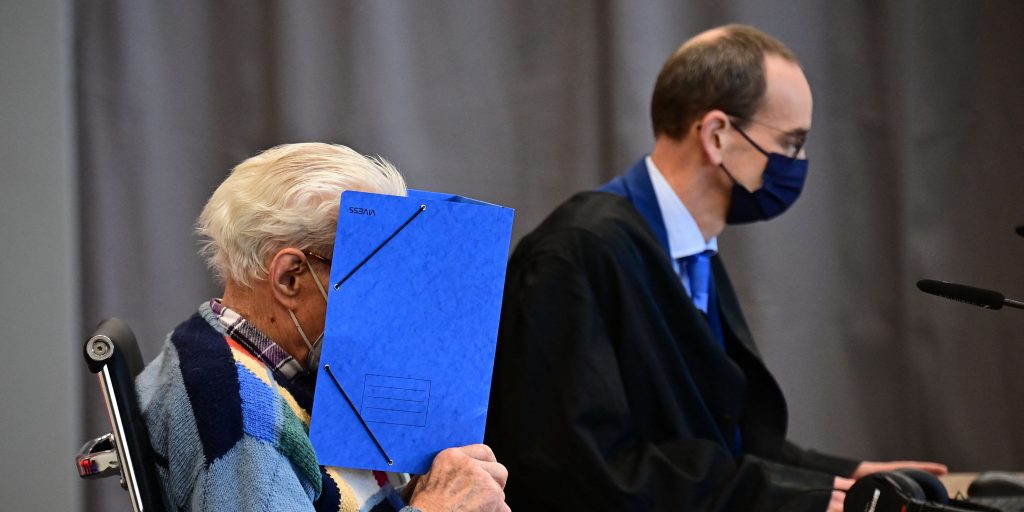
Photo by TOBIAS SCHWARZ/AFP via Getty Images
- A former Nazi guard is on trial this week on more than 3,000 counts of accessory to murder.
- Prosecutors say Josef S. contributed to 3,518 deaths as a guard at Sachsenhausen concentration camp.
- Between 1936 and 1945, more than 200,000 people were housed at the camp, and tens of thousands died.
A former German SS guard accused of being an accessory to murder during the Nazi's reign throughout World War II is standing trial nearly 80 years later.
Prosecutors allege that Josef S., now 100 years old, contributed to more than 3,000 people's deaths at the Sachsenhausen concentration camp between 1942 and 1945, Reuters reported.
The defendant, who has been identified only by his first name and last initial due to German privacy laws, regularly stood guard in the camp's watchtower during his time as a member of the Nazi party's paramilitary SS, prosecutors say. They're alleging Josef S. "knowingly and willingly" aided and abetted the deaths by acting as a guard.
The suspect, who faces 3,518 counts of accessory to murder, is on trial at the Neuruppin state court, near Berlin, Reuters reported.
The defendant's attorney told the court on Thursday that Josef would not speak, but only "provide information about his personal situation," according to The Guardian, disappointing the trial's two co-plaintiffs.
Antoine Grumbach, 79, whose father died at Sachsenhausen, said he wanted the suspect to acknowledge "the possibility of guilt," the outlet reported.
"It's a lot of emotion ... I can't really speak," said Grumbach, whose father was a French resistance fighter, according to Reuters.

Photo by TOBIAS SCHWARZ/AFP via Getty Images
Between 1936 and 1945, more than 200,000 people were housed at the camp, and tens of thousands of people died from starvation, disease, force labor, and executions, including shootings, hangings, and gassings. The camp was primarily populated by political prisoners from across the continent, as well as Soviet prisoners of war and Jews.
Leon Schwarzbaum, who is also 100, survived the camp, as well as Auschwitz and Buchenwald. He was at the trial.
"This is the last trial for my friends, acquaintances and my loved ones who were murdered, in which the last guilty person can still be sentenced - hopefully," Schwarzbaum told German news media.
In 2011, a German court ruled that even people who contributed indirectly to deaths during the World War II could face prosecution, leading to an influx of charges brought against former Nazi party members.
